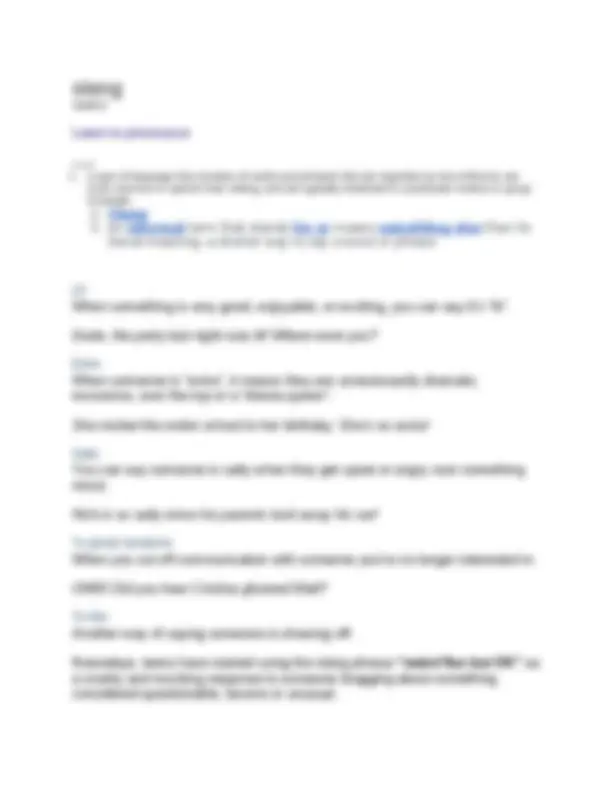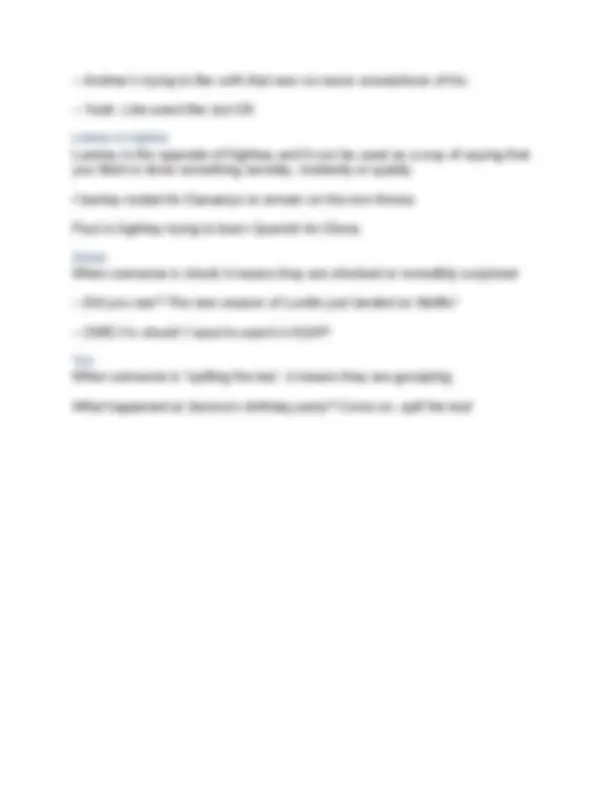




Study with the several resources on Docsity

Earn points by helping other students or get them with a premium plan


Prepare for your exams
Study with the several resources on Docsity

Earn points to download
Earn points by helping other students or get them with a premium plan
Community
Ask the community for help and clear up your study doubts
Discover the best universities in your country according to Docsity users
Free resources
Download our free guides on studying techniques, anxiety management strategies, and thesis advice from Docsity tutors
Professional content has elements of formal style writing but with a more relaxed tone. To craft the perfect, professional content, loosen up your language without making it sound sloppy.
Typology: Exams
1 / 4

This page cannot be seen from the preview
Don't miss anything!



Professional Voice
Language is a vital means of communication and education plays a key role in developing both our general language capabilities but also our use of "Professional language". Learning a professional language is like being inducted into the profession through the shared use of arcane and often obscure words and terminology. What makes sense to a “Professional" could well be gobbledygook/meaningless/nonsense to anyone else.
-Professional spoken language is a means of communication with formal tone and using a bit of formal words. It is a kind of spoken language that not everybody can understand or relate because in a setting of a professional spoken language, speakers usually use specific terminologies which would not make sense to others. -Literary spoken language is a spoken language inspired by literature. It is usually written but when its being used verbally, it will utilize word play and rhythm to tell stories. It is usually being used in spoken poetry, storytelling, declamation, and theatre acting. -Conversational spoken language is our everyday language we unconsciously use without thinking. It is a common language as spoken in an everyday context with other people. As opposed to “textbook language” that follow strict grammar rules. -Slang is a type of language that consists of words and phrases that are regarded as very informal, are more common in speech than writing, and are typically restricted to a particular context or group of people. Slang words are being used in a normal conversation with your close friends or family. It is also used these days in social media platforms. Some examples are Lit, flex, lowkey, highkey, shook and tea.
Spoken word utilizes concrete language, word play, and rhythm to tell stories. Literary language A literary language is the form of a language used in its literary writing. It can be either a non-standard dialect or standardized variety of the language. iterary language A literary language is a register or dialect of a language that is used in literary writing. This may also include liturgical writing. The difference between literary and non-literary forms is more marked in some languages than in others. Where there is a strong divergence, the language is said to exhibit diglossia. Classical Latin was the literary register of Latin, as opposed to the Vulgar Latin spoken across the Roman Empire. The Latin brought by Roman soldiers to Gaul, Iberia, or Dacia was not identical to the Latin of Cicero, and differed from it in vocabulary, syntax, and grammar. Some literary works with low-register language from the Classical Latin period give a glimpse into the world of early Vulgar Latin. The works of Plautus and Terence, being comedies with many characters who were slaves, preserve some early basilectal Latin features, as does the recorded speech of the freedmen in the Cena Trimalchionis by Petronius Arbiter. At the third Council of Tours in 813, priests were ordered to preach in the vernacular language — either in the rustica lingua romanica, or in the Germanic vernaculars — since the common people could no longer understand formal Latin. Conv. The everyday language we unconsciousy use without thinking. As distinct from the language of the classroom, written expression, formal technical language, etc. It is common language as spoken in an everyday context with other people. As opposed to “textbook language” that follow strict grammar rules. it means you can speak the language well enough to have a full conversation with someone else who speaks the language. You speak the language well enough that you will understand at least most of what they say, be able to ask what a word means and understand their answer, slang
_- Andrew’s trying to flex with that new no-name smartphone of his.
Shook
_- Did you see? The new season of Lucifer just landed on Netflix!